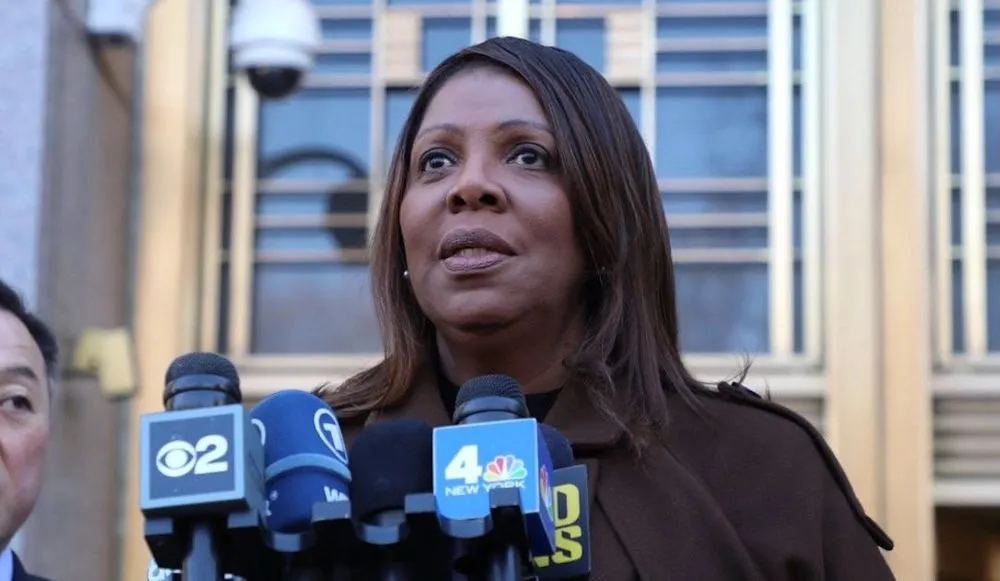New York lawsuit against Zelle creator alleges features allowed $1 billion in thefts
The creator of the Zelle electronic payment platform is facing a lawsuit from the state of New York over accusations the company did little to stop scammers from using it to steal more than $1 billion from users between 2017 and 2023.
New York Attorney General Letitia James announced the lawsuit against Early Warning Services (EWS) on Wednesday, claiming the company knew from the beginning that scammers were abusing the platform but did not adopt basic safeguards to protect users.
Zelle allows anyone with a U.S. bank account to enroll and send or receive money transfers through linked email addresses and phone numbers. It has quickly become one of the most popular payment platforms, with more than 151 million people enrolled and a payment traffic volume that eclipsed $1 trillion for the first time in 2024.
But the platform was almost immediately abused by scammers after emerging in 2017, with cybercriminals signing up and using misleading email addresses to spoof real businesses or government agencies.
In many instances, victims sent money to the wrong people but had no recourse to get their money back before it was too late. New York state officials said Zelle “quickly became a hub for fraudulent activity.”
The Office of the Attorney General said its investigation into the platform revealed that the company knew for years that fraud was running rampant on Zelle but did not do anything to stop it.
James noted that she moved forward with the lawsuit in light of the federal Consumer Financial Protection Bureau’s (CFPB) decision in March to abandon a similar lawsuit that was filed in December. The bureau was largely dismantled after President Donald Trump was inaugurated in January.
The CFPB said in December that customers of Bank of America, JPMorgan Chase, and Wells Fargo lost more than $870 million over Zelle’s seven-year existence due to the failure to stop scammers.
The federal lawsuit said hundreds of thousands of consumers filed fraud complaints and were largely denied assistance, with some being told to contact the fraudsters directly to recover their money.
“Even when EWS did receive reports of fraud, it failed to promptly remove the fraudsters from the Zelle network or require banks to reimburse consumers for certain scams,” James’ office said.
“EWS developed basic safeguards to address these issues as early as 2019, but failed to adopt them. EWS failed to meaningfully enforce even the limited, inadequate anti-fraud rules that it did have in place against participating banks despite knowing of widespread violations of those rules.”
One of the most common schemes involved New Yorkers receiving calls from scammers claiming they were late on energy bills and that their power would be shut off unless they paid the energy company through Zelle.
The scammer would then direct the victim to fake Zelle accounts impersonating the energy company. When victims would contact their bank about the scam, they were told they could not get their money back.
James noted that Early Warning Services is a financial technology company owned and controlled by JPMorgan Chase, Bank of America, Capital One, Wells Fargo and other major U.S. banks.
The banks, according to James, were unnerved by the popularity of payment platforms like Venmo, PayPal and CashApp and ordered EWS to create a rival that they controlled.
In the rush to create their own platform, the company focused on “attracting new users through a simple registration process and quick transfers that left consumers vulnerable to scammers,” New York state officials said.
“No one should be left to fend for themselves after falling victim to a scam,” James said. “I look forward to getting justice for the New Yorkers who suffered because of Zelle’s security failures.”
James said she is seeking restitution and damages for New Yorkers affected by the scams as well as a court order mandating Zelle maintain anti-fraud measures.
‘Political stunt to generate press’
In 2023, Early Warning Services itself acknowledged the rampant scams and announced that it partnered with the Better Business Bureau Institute and their Corporate Trust Council to help people avoid thefts.
Since then, Early Warning Services has been public about its work to stop scammers from abusing the platform, including work with the National Council on Aging to “develop and publish educational content on avoiding payment scams aimed at older Americans.”
The company has released multiple blog posts warning customers about scams and how to avoid them. In 2023, the banks began refunding victims of scams due to pressure from the CFPB and U.S. lawmakers.
But a spokesperson for Early Warning Services slammed James in a statement to Recorded Future News on Wednesday, calling the lawsuit a “political stunt to generate press, not progress.”
EWS claimed James “wants to hand criminals a blueprint for guaranteed payouts with no consequences, opening the floodgates to more scams, not less.”
The lawsuit is “nothing more than a copycat of the Consumer Financial Protection Bureau lawsuit that was dismissed in March.”
“Despite the Attorney General’s assertions, they did not conduct an investigation of Zelle,” the spokesperson said.
“Had they conducted an investigation, they would have learned that more than 99.95 percent of all Zelle transactions are completed without any report of scam or fraud – which leads the industry. The Attorney General should focus on the hard facts, stopping criminal activity and adherence to the law, not overreach and meritless claims.”
The company did not respond to follow-up questions about their multiple public acknowledgements of widespread scam campaigns on Zelle.
JP Morgan and Bank of America declined to comment while several other banks behind the company did not respond to requests for comment.
Jonathan Greig
is a Breaking News Reporter at Recorded Future News. Jonathan has worked across the globe as a journalist since 2014. Before moving back to New York City, he worked for news outlets in South Africa, Jordan and Cambodia. He previously covered cybersecurity at ZDNet and TechRepublic.



